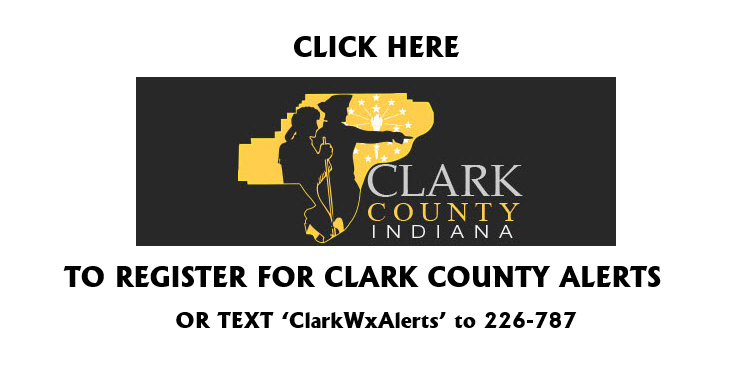About Dialing 9-1-1 in Clark County Indiana
When should I call 9-1-1?
- To Stop a Crime
- To Report a Fire
- To Save a Life
- Anytime An Emergency Response Is Required By Law Enforcement, Fire Or Emergency Medical Personnel
- You should call 9-1-1 anytime you believe there is an actual emergency. If you are unsure, call 9-1-1 and the dispatcher will make the final determination.
Remember: If the 9-1-1 system receives multiple calls at the same time, these calls will be handled on a priority basis with the most serious emergencies being handled first. Please be patient if your call is put on hold. DO NOT HANG UP!
When shouldn't I call 9-1-1?
- Please do not call 9-1-1 to report that electricity or other utilities are off in your area
- To notify authorities of traffic jams or to inquire about road conditions. (To check Road Conditions Call 800-261-7623)
- To inquire about government services or to learn general information
How will my call be handled by the 9-1-1 dispatcher?
When you call 9-1-1 to report an emergency, the dispatcher will ask you five basic questions . . .
- Where is this happening?
- When did this happen?
- What is happening now? Why?
- Who is involved?
- How can we help?
Other Information You May Need: Include the exact location or address of the emergency and a clear description of exactly what is happening. When giving locations include nearby intersections, landmarks, building name, floor, room or apartment number, as well as directions to the address, if possible.
Remember: Attempt to stay calm when you are talking to a 9-1-1 dispatcher. Take a deep breath. Listen to and answer each question. Do not hang up after dialing 9-1-1 until the dispatcher tells you to do so (even if you did not mean to dial 9-1-1).
What do I need to know to give a good description?
In many 9-1-1 emergencies, the dispatcher will ask you to describe either the people or the vehicles involved in the emergency.
When describing an individual start at the top of the head and work your way down.
- What was the race and sex of the subject?
- How tall was the subject?
- What was the hair color?
- What was the subject wearing? (Start from the top of the head and go down.)
- Did the subject have a moustache, beard, accent, limp, glasses or anything unusual that might make the subject stand out?
When describing a vehicle, the dispatcher will ask for the following information:
-
- Color
- Year of vehicle
- Make of vehicle
- Body style
- Additional description
- License plate on the vehicle
If you don’t know any of the above information, a general description of the vehicle will help. Example: A large, dark older vehicle.
Does it make a difference if I call 9-1-1 on a cellular phone?
Yes! When you make a 9-1-1 call from your wireless/cellular phone, dispatchers DO receive the phone number, however we don't receive the specific location/address from where the call originated.
When you make a 9-1-1 call from a cellular phone keep in mind that you need to know . . .
-
- Your cellular phone number (If you provide your cellular phone number to the 9-1-1 dispatcher, the dispatcher will be able to reach you in case the call is disconnected, which often happens with cellular calls.)
- A good description of your surroundings (It is a good idea to always know the name of the road you are traveling on, which direction you are headed and how many miles you are from the nearest town or the nearest cross street.)
Remember: Many people do not have their cellular phone number memorized. Make sure that you have the number written down in an easy to find location before you need to call 9-1-1.
Can I call 9-1-1 if I use a T.D.D.?
Yes. The Clark County 911 system is equipped with TDD/TTY equipment. Communications professionals receive extensive training in handling emergency situations utilizing this special equipment.
Can someone call 9-1-1 who does not speak English?
Yes. Clark County 911 subscribes to the Language Line, which provides access to interpreters who speak more than 140 languages. The Language Line maintains a 24-hour communications center. Even when receiving a 9-1-1 call from a non-English speaking individual, help is only minutes away.
Will I receive medical information when I call 9-1-1?
The information that you receive when dialing 9-1-1 varies with the type of emergency. In all cases, dial 9-1-1 for medical emergencies that require an ambulance.
It is recommended that you know CPR and other life-saving techniques. Contact your local fire department or the American Red Cross for more information.
Should I call 9-1-1 when my utilities stop working?
NO - You need to contact your individual utility companies, who provide phone, gas, water and electric services to your home. The 9-1-1 dispatcher CAN NOT help you when these utilities stop working.











